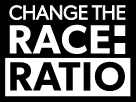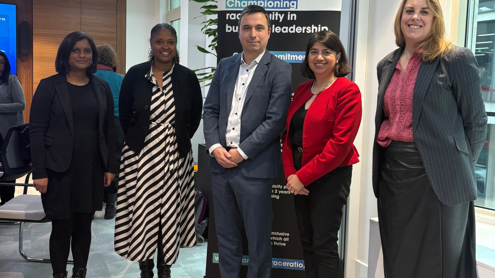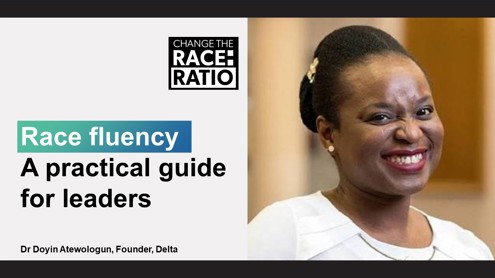From Promise to Progress: Turning race pledges into lasting change
Change the Race Ratio joined senior inclusion leaders for the launch of the DEI Council’s report From Promise to Progress: The Efficacy of Race and Ethnicity Programmes in the UK post-2020 in London. The discussion explored whether UK employers have turned post-2020 race-equity commitments into sustainable change. The event was hosted by the chairs of the DEI Council and authors of the report Chika Aji, Global Head of EDI at Carlsberg and Razan Abdelgadir, Global DEI Manager at Chanel.
Richard DeNetto, CEO of Change the Race Ratio, took part in a panel discussion alongside Kiki Oniwinde Agoro, Founder and CEO of BYP Network and Hanna Naima McCloskey, Founder and CEO of Fearless Futures.
Key findings from the report
- Surface-level fairness is improving, but psychological safety remains weak
While 70% of respondents said they are treated fairly at work (up from 63% in 2020), only 46% felt able to express their authentic selves. - Data collection with no systemic change creates an illusion of progress
Although 96% of organisations collect ethnicity data and 72% have set diversity targets, only 37% run structured senior-talent pipelines and fewer than 40% link those goals to leadership accountability. The report warns that measuring disparities without addressing structural barriers risks creating “the illusion of progress.” - Microaggressions remain common
One-third of respondents reported experiencing microaggressions, down from 40% in 2020, but it is still widespread. Rates are highest among Black women (35%) and lowest among white employees (22%), with mid-career professionals most exposed. This indicates that everyday behaviours continue to undermine inclusion. - A pronounced trust gap persists between ethnic minority employees and their employers
Employees in organisations that collect data but fail to build progression pipelines scored lower on perceptions of organisational commitment to race equity. Mid-career professionals were least likely to believe promotions were fair, highlighting continuing scepticism about whether commitments translate into action. - Roles models matter
The presence of visible ethnic-minority leaders correlates strongly with inclusion outcomes. Employees who can identify at least one minority role model in senior leadership score higher on authenticity and on fairness. - Accountability is the missing link
Only 38% of organisations tie race and ethnicity targets to leadership performance or pay. Where accountability is embedded, 71% report being on track to meet goals; where it is absent, fewer than half do.
The findings remind us that progress on race equity depends on leadership, transparency, and shared responsibility. To read the full report, please find the link to download below.







